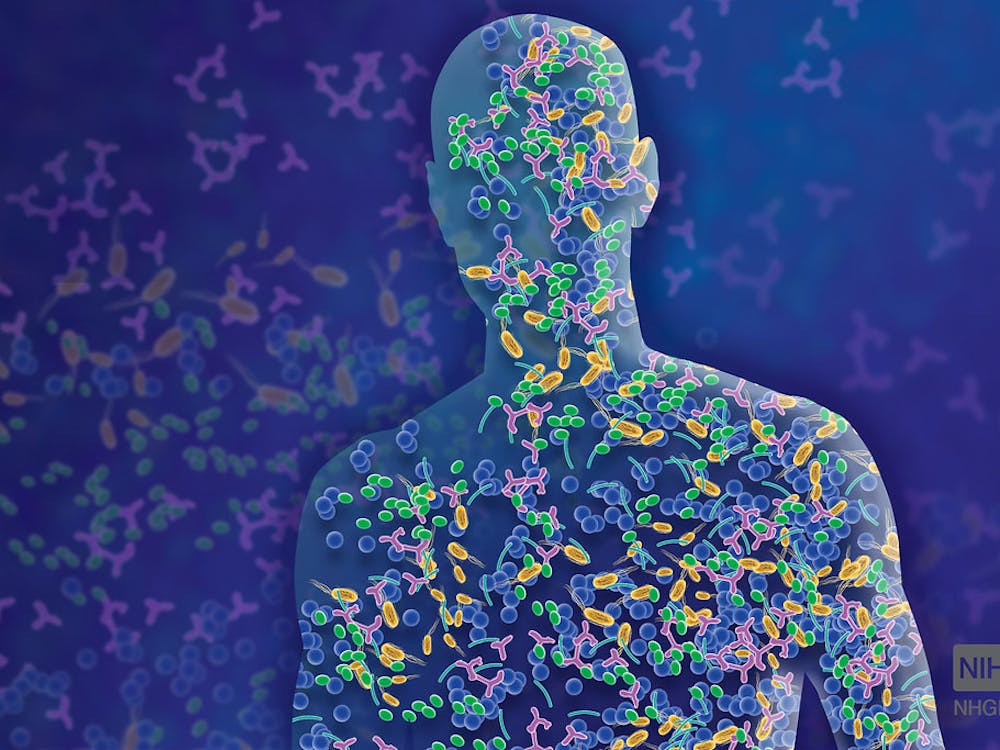“Hi. I am Robert Suttle and I am not a criminal. I am not a sex offender.”
Last Thursday, Suttle, alongside two colleagues, stood before a sea of Hopkins undergraduates and professed the reality of his situation. He was personable, grounded and boldly transparent.
“Me. Living in the south. I’m black. I’m gay. I’m HIV positive.” He nodded his head as if to add, you do the math.
Suttle is the Assistant Director of the advocacy organization, SERO, a non-profit group that aims to empower those living with HIV/AIDS. The group also works to clear the negative public stigma surrounding the disease and fight the injustice of HIV criminalization. HIV criminalization involves severe legal repercussions for those with HIV who do not disclose their condition to sexual partners or, in the eyes of the law, who attempt to “maliciously infect” others. As of now, thirty-six states in the US have HIV criminalization statutes.
Suttle is a powerful and shocking example to the inherent fallacy of the United States prosecution system. He shares his story about how he spent a six-month stint in a Louisiana jail for HIV non-disclosure to a former partner with whom he had a contentious relationship. In fact, Suttle did disclose his situation, and his partner only pressed charges after the relationship ended.
The law now labels Suttle as a registered sex offender, an unjustly placed scarlet letter that he will have to bear for the rest of his life. The tag on his Louisiana-issued driver’s license makes no mistake about that.
“Every HIV positive patient is one disgruntled partner away from court,”
Sean Strub remarked in response to Suttle’s story. Strub is the founder and Executive Director of SERO and is no stranger to the system of HIV/AIDS criminalization. Strub too has HIV and spent many years in deteriorating health before he responded well to the then new combination therapy in 1996. He is thankful for the opportunity this newfound health has given him to help reverse the HIV stigma. Strub decided to take action the minute he received his HIV positive test results.
“I knew it was something I had to do…[HIV criminalization] is a global phenomenon and unfortunately, the US has led the way,” he says. SERO is the outcome of his conviction and dedication to the cause.
“HIV/AIDS related stigma is far worse today than it used to be,” Strub adds. This suggests regression of the current condition of HIV stigma, a negative trend that must be reversed.
Strub suggested a four-part approach to the issue. He first emphasized that policy needs to change so that prosecutors focus on the malicious intent of the defendant, rather than focusing on the fact that they have HIV. Also, in the current system, patients are handed a pamphlet immediately upon diagnosis that informs them of potential criminal prosecution against them. This instantly dehumanizes the patient in their most vulnerable moment. Strub explains how people like him are now “seen as a risk to society… a viral vector” and that “being conscious of the criminalization statute makes people less likely to disclose their condition.”
Strub also comments on how law enforcement does not even assess risk or harm inflicted with regards to these HIV statutes.
“Science was never a consideration during my prosecution,” Suttle said.
Lastly, Strub points out the irrationality of HIV criminalization by discussing state statutes that can put these so called “sex offenders” away for ten to twenty-five years. Innocent citizens are spending years in prison; forever denounced as criminals, because of a disease state, an immutable characteristic much like ethnicity or gender.
Another shocking perspective came from Ken Pinkela, who rose from his seat in full military garb.
“I’ve been out of jail for a week.” Pinkela, too, is HIV positive and is documented to have contracted the virus through blood contact. He was prosecuted by the military for “aggravated assault with a deadly weapon.” That weapon was HIV. Pinkela explained how it felt to be free again and how the injustice he suffered, after twenty-five years of service to the country, is only motivation for him to be an anti-HIV criminalization advocate.
“I came out fighting and I’m not going to stop fighting. I’m not,” Pinkela said.
Strub closed with remarks directed towards the student body.
“Students have vastly more powerful voices than they tend to realize.”
He urged the undergraduate population to vocalize and speak out against the current injustice by lobbying for political change. Some collegiate organizations like United Against Infectious Diseases are already organizing to fight these statutes.






















Please note All comments are eligible for publication in The News-Letter.